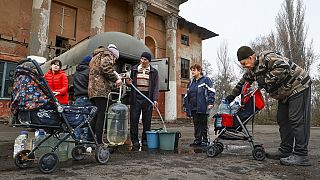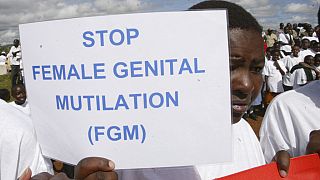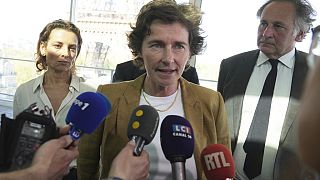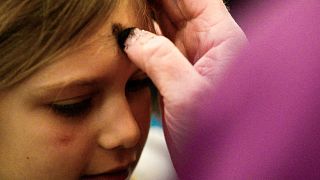France
Despite a costly clean-up project of Paris' River Seine, doubts remain over whether the famous waterway will be clean enough for athletes to swim in.
Triathlon and marathon swimming are scheduled to take place in the Seine, the city's historic waterway, where it has been illegal to swim for more than a century. Despite the city's efforts to clean up the long-polluted river, the water has tested unsafe for humans in recent weeks, and cleaner on other days. The Games run from July 26-Aug. 11.
To clean up the river, Paris invested 1.4 billion euros ($1.5 billion) in building infrastructure to catch more stormwater when it rains — the same water that contains bacteria-laden wastewater that enters the river during periods of heavy rain and makes it unsafe to swim in.
In May, Paris officials inaugurated a giant underground water storage basin next to the Austerlitz train station aimed at collecting excess rainwater and stopping wastewater from entering the Seine. The basin can hold the equivalent of 20 Olympic swimming pools of dirty water that will now be treated and is the centerpiece of major infrastructure improvements that the city has rushed to finish in time for the Games, but to also ensure that Parisians have a cleaner Seine in years to come.
But a few spells of heavy rain could push E. coli levels beyond the limit of 900 colony-forming units per 100 milliliters that the World Triathlon Federation has determined as safe for competitions.
Wastewater overflow
“The issue in Paris and the Seine River is similar to a lot of older cities,” said Metin Duran, a professor of civil and environmental engineering at Villanova University who has researched stormwater management.
Paris, like many old cities around the world, has a combined sewer system, which means that the city’s wastewater and stormwater flow through the same pipes. With heavy or prolonged periods of rain, the pipes’ capacity is reached, which means raw wastewater flows into the river instead of a treatment plant.
On a daily basis, the monitoring group Eau de Paris has tested the river water, yielding results that showed unsafe E. coli levels in recent weeks followed by results in early July that showed improvement.
But testing can take up to 24 hours to get a result, so if significant rainfall occurs after sampling, results may not reflect actual conditions during the swimming events, Duran said.
“They’re not going to have real time water quality data,” he said.
Hoping for sunny weather
Paris Olympic organizers have said that if heavy rain affects the Seine's flow during the Games, the triathlon would no longer feature the swimming portion — and the marathon swimming competition would be relocated to the Vaires-sur-Marne Nautical Stadium in the greater Paris region.
But organizers remain optimistic that drier, sunnier weather than what the French capital experienced in June will allow the events to go as planned — buffeted by the infrastructure upgrades. The sun's ultraviolet rays kill bacteria like E. coli in water.
On Saturday, the French Sports Minister Amélie Oudéa-Castéra took a plunge to demonstrate that the famed river is clean enough.












Go to video
Nigeria's market doctors bring healthcare directly to traders
Go to video
Nigerian Football Federation guilty of negligence in footballer's death
Go to video
French diplomats given 48-hour notice to leave Algeria
Go to video
In Abidjan, the sport academy fueling Ivory Coast's football dreams
01:04
Nathan Lyon anticipates fierce bowling battle in WTC final against South Africa
01:54
Uganda: the infiltration of plastics into agricultural fields and food raise concern